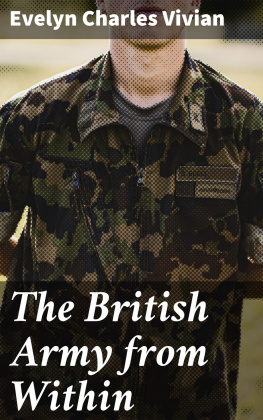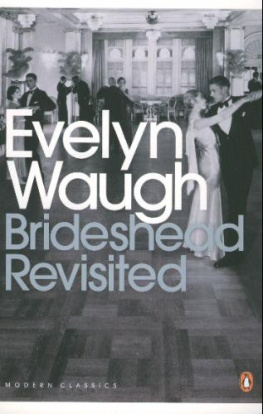CHAPTER I
UBIQUE: THE ARMY AS A WHOLE
On the badges of the corps of Engineers, and also on those of the Royal Artillery, will be found the word Ubique, but it is a word that might just as well be used with regard to the whole of the British Army, which serves everywhere, does everything, undergoes every kind of climate, and gains contact with every class of people. In this respect, the British soldier enjoys a distinct advantage over the soldiers of continental armies; he has a chance of seeing the world. India, Africa, Egypt, the West Indies, Mauritius, and the Mediterranean stations are open to him, and by the time he leaves the service he has at least had the opportunity of becoming cosmopolitan in his tastes and waysof becoming a man of larger ideas and better grasp on the problems of life than were his at the time when he took the oath and passed the doctor. Of that phase, more anon.
It is of little use, in the present state of the British Army, to attempt to define its extent or composition, for it is in such a state of flux that the numbers of battalions, regiments, and batteries of a year ago are as obsolete as the Snider rifle. There used to be 157 battalions of infantry, 31 regiments of cavalry, and about 180 batteries of horse and field artillery, together with about 100 companies and 9 mountain batteries of Royal Garrison Artillery, forming the principal strength of the British Army. To these must be added the Royal Engineers, the Army Service Corps, the Royal Ordnance Department, the R.A.M.C., the Army Pay Corps, and other non-combatant units necessary to the domestic and general internal working of an army. To-day these various forces are increased to such an extent that no man outside the War Office can tell the strength of infantry, cavalry, and artillery; no man, either, can tell what will be the permanent strength of the Army on a peace footing, when the present urgent need for men no longer exists, and there is only to be considered the maintenance of a force sufficient for the garrisoning of colonial and foreign stations and for ordinary defensive needs at home.
Generally speaking, the soldier at home, no matter to what arm or branch of the service he belongs, undergoes a continuous training. It takes three years to make an infantryman fully efficient, five years to make a cavalryman thoroughly conversant with his many duties, and five years or more to teach a gunner his business. The raw material from which the Army is recruited is mixed and sometimes uneducated stuff, and, in addition to this, recruits are enlisted at an age when they must be taught everythingthey are past the age of the schoolboy who absorbs tuition readily and with little trouble to his instructors, and they have not attained to such an age as will permit them to take their work really seriously. This, of course, does not apply to a time of great national emergency, when the men coming to the colours are actuated by the highest possible motives, eager to fit themselves for the work in hand, and bent on getting fit for active service in the shortest possible time. In times of peace, recruits join the colours from many motivespure patriotism is not a common oneand, in consequence, the hard realities of soldiering in peace time disillusion them to such an extent that they are difficult to teach, and thus need the full term of training for full efficiency. Half the work of their instructors consists in getting them into the proper frame of mind and giving them that esprit de corps which is essential to the war fitness of a voluntary army.
At the best, there is much in the work that a soldier is called on to do which is beyond his understanding, in the first years of his service. One consequence of this is that he learns to do things without questioning their meaning, and thus acquires a habit of obeying; this, up to a few years ago, was the object of military trainingto instil into the soldier unquestioning obedience to orders, and the sentenceobedience is the first duty of the soldier, gained currency and labelled the soldier as a mere cog in a great machine, one whose duty lay in obeying as did that Roman sentinel at Pompeii. One of the chief lessons of the South African war, however, was that such obedience was no longer the first duty of the soldier; he must obey, no less than before, but scientific warfare demands an understanding obedience, and not the unquestioning, die-at-his-post fidelity of old time. The recruit of to-day must be taught not only to obey, but to understand, and by that fact the work of his instructors, and his own work as well, are largely increased. Obedience was the watchword of yesterday. Obedience and initiative is the phrase of to-day.
To come down to concrete facts as regards the actual composition and general duties of the Army. The main station in England is Aldershot, headquarters of the first Army Corps. Theoretically, in all cases of national emergency, the Aldershot Command is first to move, and the units composing it are expected to be able to mobilise for active service at twenty-four hours notice. Next in importance are Colchester, Shorncliffe, York, and Bulfordthe centre of the Salisbury Plain area under military control. In Ireland the principal stations are Dublin and the Curragh. In these stations, under normal circumstances, the furlough season begins at Christmas time and lasts up to the following March; for this period men are granted leave in batches, and drill and training for those who remain in barracks while the others take their holidays is somewhat relaxed. Serious training begins in March, when the corporals, sergeants, and troop and section officers begin to lick their squads, sections, and troops into shape. Following on this comes company training for the infantry, squadron training for the cavalry, and battery training for the artillery, and this in turn is followed by battalion training for infantry, regimental training for cavalry, and brigade training for artillery. Somewhere during the period taken up before the beginning of regimental and battalion training, musketry has to be fitted in, and, as the ranges cannot accommodate all the men at once, this has to be done by squadrons and companies, while those not engaged in perfecting their shooting continue with their other training. At the conclusion of the training of unitsregiments, battalions, and brigades of artillerybrigade and divisional training is begun, and then manuvres follow, in which the troops are given opportunities of learning the working of an army corps, as well as getting practical experience of camp life under conditions as near those obtaining on active service as circumstances will admit. By the time all this has been completed, the furlough season starts again, and the round begins once more with a few more recruits to train, a few old soldiers missing from the ranks.









